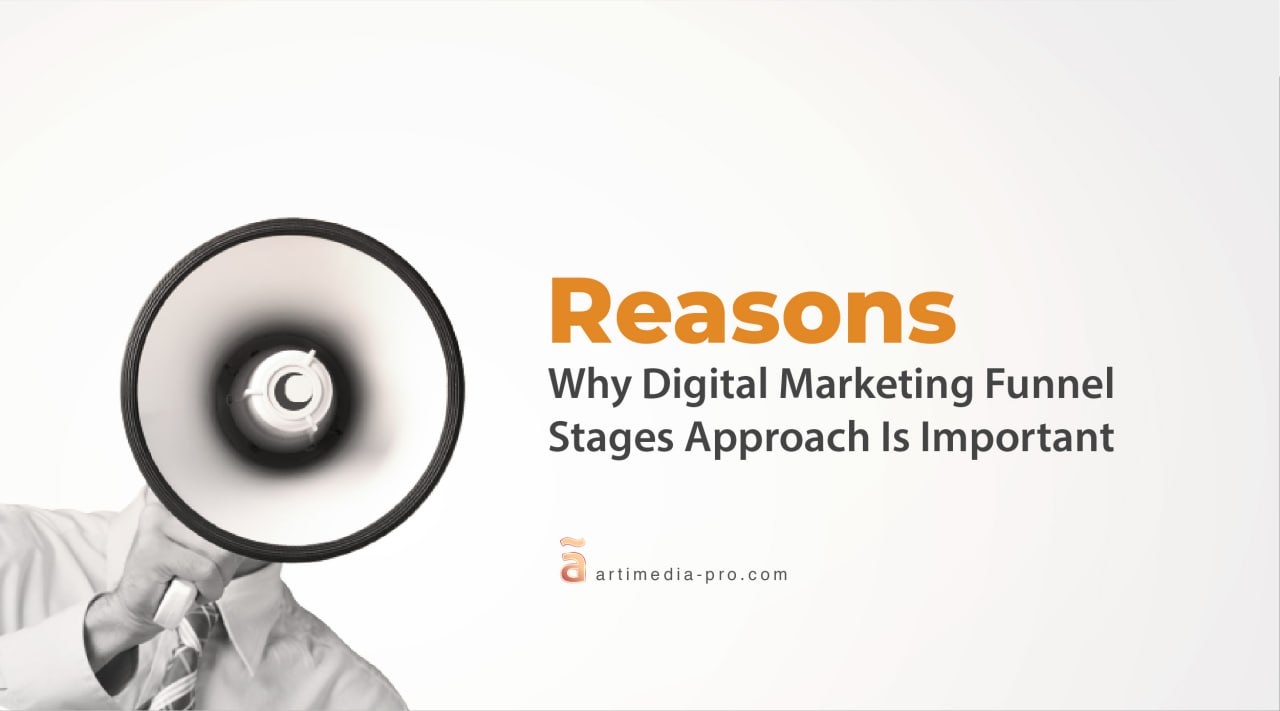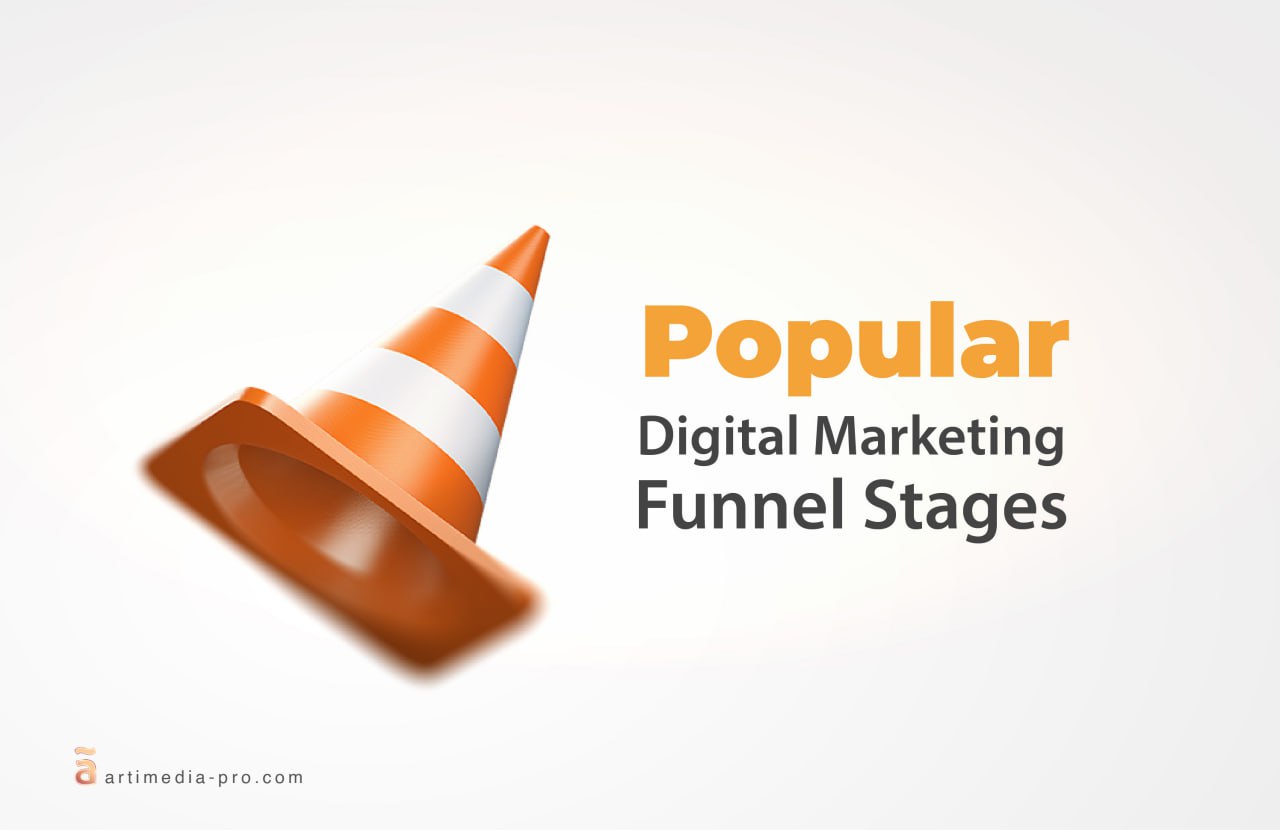The digital marketing funnel is an important concept in digital marketing, even in traditional marketing, and understanding the digital marketing funnel stages can and will improve your overall marketing strategy.
Moreover, the digital marketing funnel is the roadmap that leads potential customers from their first interaction with your brand to becoming loyal customers.
Thus, understanding the digital marketing funnel stages is crucial to creating effective marketing campaigns and achieving higher conversion rates.
Today in this blog, we will dig into each stage of the digital marketing funnel and share with you information on each stage’s goals and channels, moreover, to optimize your strategy at each step.
The 4 Basic Digital Marketing Funnel Stages:
No matter how big your digital marketing campaign is, or what digital marketing funnel types you are using, to succeed, it must contain and go through these 4 basic digital marketing funnel stages:
1. Awareness Stage:
The first stage of the digital marketing funnel is considered the first touchpoint with your potential clients as even you are not selling at this stage, you are establishing your brand as a trusted source of information.
At the awareness point, potential customers are unfamiliar with your brand, products, services, or solutions you can offer to their problems and needs.
This stage has the power to create a lasting and memorable first impression and capture the attention of the targeted audience.
The Primary Goals of the Awareness Stage:
- Brand Exposure:Increase your brand visibility and recognition among your target audience to help them remember your brand when they encounter a relevant problem or need.
- Audience Growth:Expand your reach to a wider audience and introduce your brand to potential customers who may not have met it otherwise.
- Educate and Inform:Provide valuable information that addresses the pain points or interests of your audience.
What are the Best Marketing Channels for the Awareness Stage?
- Content Marketing.
- Social Media Marketing.
- Search Engine Optimization (SEO):
- Influencer Marketing.
- Google Ads.
2. Consideration Stage:
The consideration stage is the second phase of the digital marketing funnel with potential customers who moved past your brand awareness stage and are actively evaluating their options.
This stage is all about nurturing leads, providing them with the information they need to make an informed decision, and convincing them that your brand is the right choice.
Moreover, they are considering your products or services as potential solutions to their needs or problems, and actually, this is what makes this stage critical because it gives you the chance to influence their decision-making process and guide them toward choosing your brand.
The Primary Goals of the Consideration Stage:
- Building Trust:Establish trust and credibility, through localized branding and other trust-building moves, with potential customers, so they can see your brand as a trustworthy solution provider.
- Educating and Informing:Address the specific pain points and questions that potential customers may have by providing in-depth information about your products or services.
- Showcasing Differentiators:Point out what sets your brand apart from competitors by talking about your unique features, benefits, pricing, or customer service.
The Best Marketing Channels for the Consideration Stage:
- Webinars and Online Workshops.
- Social Proof.
- Targeted Paid Ads.
- Social Media Engagement.
- Live Chat and Customer Support.
3. The Conversion Stage:
The Conversion stage is the critical point in the digital marketing funnel where potential customers evolve into paying customers.
At this stage, individuals already know your brand, engage with your content, consider your offerings, and are ready to make a purchase decision, moreover, the conversion stage is where your marketing efforts translate into real results for your business.
Thus, the primary goal in this digital marketing stage is to encourage them to take a specific action that leads to a transaction, such as making a purchase, signing up for a subscription, or requesting a quote.
The Primary Goals of the Conversion Stage:
- Lead Conversion:Turn interested prospects into paying customers or clients.
- Increase Revenue:Drive sales and make revenue for your business.
- Action-Oriented:Encourage a specific action, such as filling out a contact form, adding items to a shopping cart, or making a direct purchase.
The Best Marketing Channels for the Conversion Stage:
- Landing Pages.
- Email Marketing.
- E-commerce Marketing.
- Targeted Online Ads.
- Social Media Built-in Shopping Features
- Call-to-Action Optimization.
4. Loyalty Stage:
The last stage of the digital marketing funnel is where your work upgrades from acquiring new customers to retaining and nurturing existing ones.
Additionally, at this stage, individuals have already made a purchase or engaged with your brand, however, you should not stand there but your goal should be turning these customers into loyal advocates who continue to support and promote your brand.
The Loyalty Stage is essential for long-term business growth as loyal customers not only provide repeated revenue but also act as brand supporters significantly impact your reputation and attract new customers through word-of-mouth marketing.
Thus, keep in mind that by nurturing and maintaining strong relationships with your existing customer base, you will have sustainable success and increase your brand loyalty.
The Primary Goals of the Loyalty Stage:
- Customer Retention:Retain and strengthen your relationship with existing customers to encourage repeat business engagement.
- Brand Advocacy:Turn satisfied customers into brand advocates who keenly promote your products or services to their friends, families, and colleagues.
- Upselling and Cross-selling:Identify opportunities to upsell or cross-sell additional products or services to existing customers.
The Best Marketing Channels for the Loyalty Stage:
- Loyalty Programs.
- Feedback and Surveys.
- Customer Support.
- Community Building.
- Referral Programs.
Read more: Digital Marketing Funnel Metrics You Should Follow!

6 Reasons Why Digital Marketing Funnel Stages Approach Is Important:
The digital marketing funnel stages approach is essential for businesses with its roadmap to success and guides potential customers through their journey, optimizes resource allocation, and builds lasting relationships, thus, ultimately leading to business growth and success.
1. Designed Customer Journey:
The digital marketing funnel stages provide a structured framework for understanding and guiding potential customers through their journey by breaking down the complex process of online marketing into manageable steps.
2. Effective Resource Allocation:
By identifying each stage of the digital marketing funnel, businesses can assign their resources and tailor their marketing strategies to target specific stages, ensuring that they invest time and budget where it matters most.
3. Improved Customer Understanding:
This personalized approach can significantly increase engagement and conversion rates through understanding potential customers better and modifying the available services based on their specific needs and preferences.
4. Enhanced Lead Nurturing:
The digital marketing funnel stages approach helps businesses nurture leads more effectively as by providing the right content and information at each stage, companies can build trust, answer questions, and overcome objections.
5. Measurable Progress:
With data-driven approaches businesses can measure progress and track performance and then identify jams and areas that need improvement, moreover, this allows continuous optimization of marketing strategies.
6. Customer Retention and Advocacy:
Beyond acquisition, the digital marketing funnel stages tactic extends to customer retention and advocacy by building long-term relationships, promoting repeat business, and turning satisfied customers into effective brand advocates.
And this is required for large and small businesses marketing.
Real Steps to Optimize Each Stage of the Digital Marketing Funnel:
As we explained earlier, each stage of digital marketing has its specifications and requirements, thus, optimizing each stage should differ from the others to reach effective results.
And now, we are going to share with you the required steps to update and optimize each stage based on your business needs and customers’ specifications.
Awareness Stage Optimization:
- Create engaging content.
- Leverage social media.
- Optimize for search engines.
- Use paid advertising.
- Build an email list.
Consideration Stage Optimization:
- Provide in-depth content.
- Use email drip campaigns.
- Host webinars and workshops.
- Implement remarketing.
- Showcase social proof.
Conversion Stage Optimization:
- Optimize landing pages.
- Run effective email campaigns.
- Conduct A/B testing.
- Ensure mobile-friendliness.
- Offer immediate customer support.
Loyalty Stage Optimization:
- Establish loyalty programs.
- Utilize email marketing.
- Engage on social media.
- Offer exclusive content.
- Gather feedback and run surveys.
- Encourage referrals.
To sum up,
These 4 digital marketing funnel stages are your way to create and optimize the best possible version of your marketing funnel according to your client’s needs and market indicators.
However, make sure to not work randomly and create the best digital marketing funnel with ãrtiMedia Pro.
